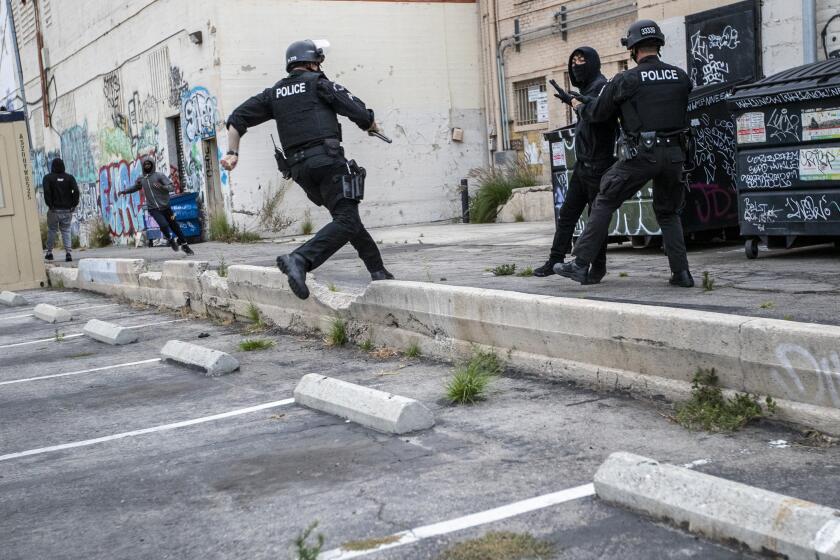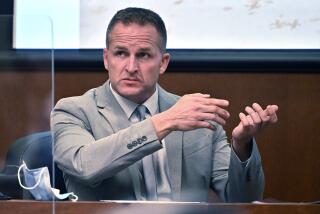Louisville demanded justice after police fatally shot Breonna Taylor. Instead, it lost another black life
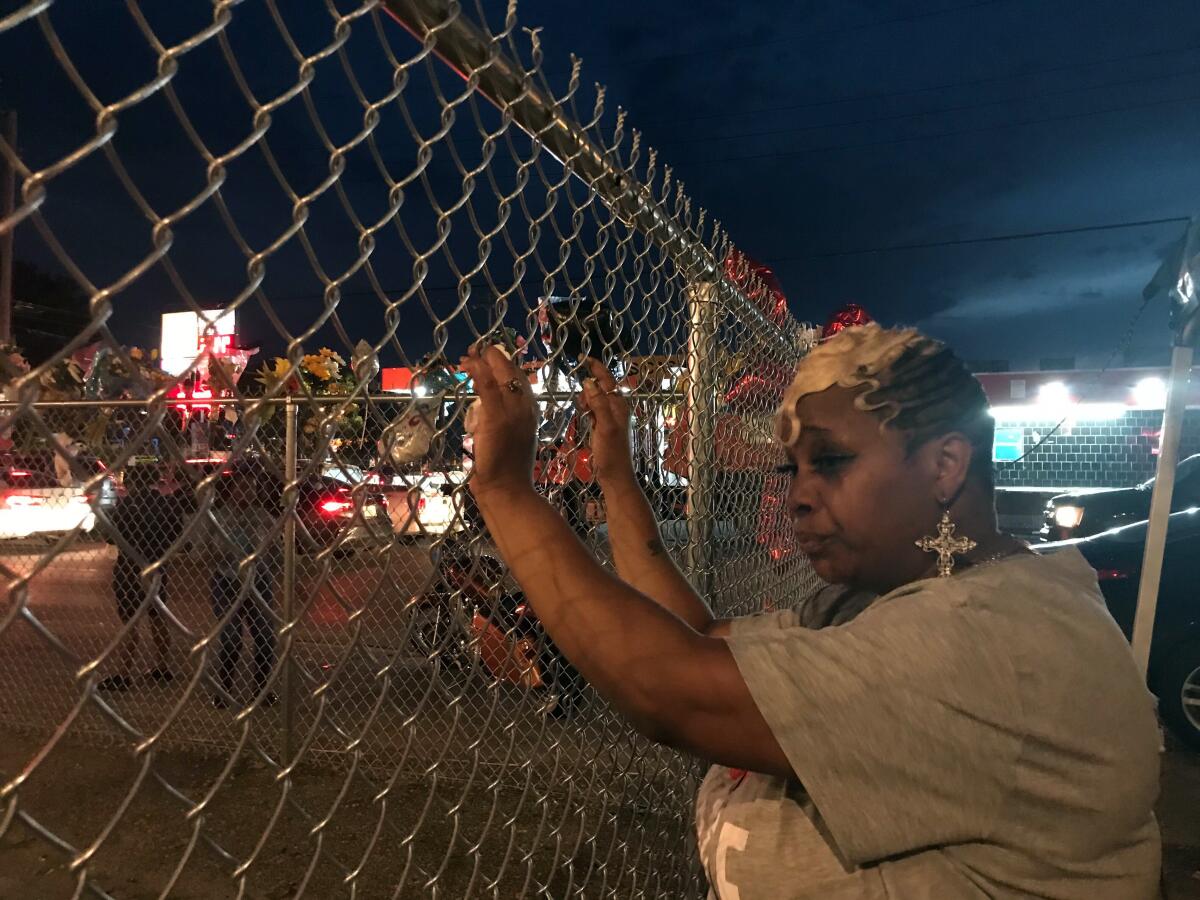
- Share via
LOUISVILLE, KY. — It had been a long day at the hospital. Breonna Taylor was tired. She and her boyfriend met for a steak dinner and then drove home to her southside neighborhood, where they fell into bed and turned on “Freedom Riders,” a documentary about the 1960s civil rights movement.
Taylor had dozed off — she was due back at the hospital early the next morning — but was awakened by pounding on the front door shortly after midnight March 13.
“Who is it?” her boyfriend, Kenneth Walker, said he yelled multiple times. When nobody answered, he reached for his licensed handgun.
The door burst open, and three men in street clothes rushed in, weapons drawn, Walker said. He fired a shot, striking one of them in the thigh. The men responded with more than 20 bullets, eight of which hit Taylor, killing her.
The men, whom Walker said he believed were intruders, turned out to be police who were serving a warrant at Taylor’s apartment in search of a suspected drug dealer. The alleged dealer, who police say once picked up a package at Taylor’s house, had in fact already been arrested by other officers at his house 10 miles away.
Upstaged at first by the coronavirus outbreak — which Taylor, an emergency room technician, was helping fight — the police shooting death of an unarmed black woman in her own home nearly went unnoticed nationally. It quickly slipped from the headlines, another tragic encounter between police and African Americans.
“At first we felt a little lonely,” said Elysia Bowman, her best friend, who worried that Taylor, who would have been 27 this month and was known by some as Breezy, might be forgotten.
But suddenly, Taylor’s name was echoing through the streets. New developments in her case combined with two weeks of international outrage over the death of George Floyd in Minneapolis police custody ignited protests here on Taylor’s behalf.
It felt like attention was finally being paid. But the police response to those demonstrations, as if in a cruel arc, would end up claiming another black life in a spray of gunfire.
Like cities across the country, Louisville responded to protests against police brutality with a curfew and aggressive policing. Those measures resulted in the death of David “Ya Ya” McAtee, a 53-year-old with long dreadlocks who ran a barbecue joint on a busy corner in Louisville’s poor, predominantly black West End.
Recent protests in Los Angeles have served up a steady stream of troubling videos of police aggression and violence.
Just after midnight on June 1, dozens of police and National Guard troops descended on the neighborhood to clear people from the streets. The people were not protesting and were miles away from the nearest demonstration, but they were in violation of Mayor Greg Fischer’s curfew.
As the crowd began to disperse, a police officer fired a nonlethal pepper spray pellet, sending several people running for cover into McAtee’s small restaurant, which doubled as his home.
Surveillance videos from the scene show that McAtee, who was inside, poked his head out the door to see what was happening while his hand came to rest on what appeared to be a handgun strapped to his right hip. Immediately police fired two pepper balls toward him and his niece, who was also standing in the doorway, narrowly missing her head.
In response, McAtee appeared to fire one shot out the door. Two police officers and one member of the National Guard shot back, killing him. Soon Louisville, which had laid Taylor to rest as winter gave way to spring, was readying itself for another funeral.
Protesters have argued that McAtee and Walker were acting in self-defense in line with Kentucky’s “stand your ground” law, which gives residents the right to use deadly force against home intruders. Both incidents, they say, were the result of sloppy and confrontational policing that treats black lives as expendable.
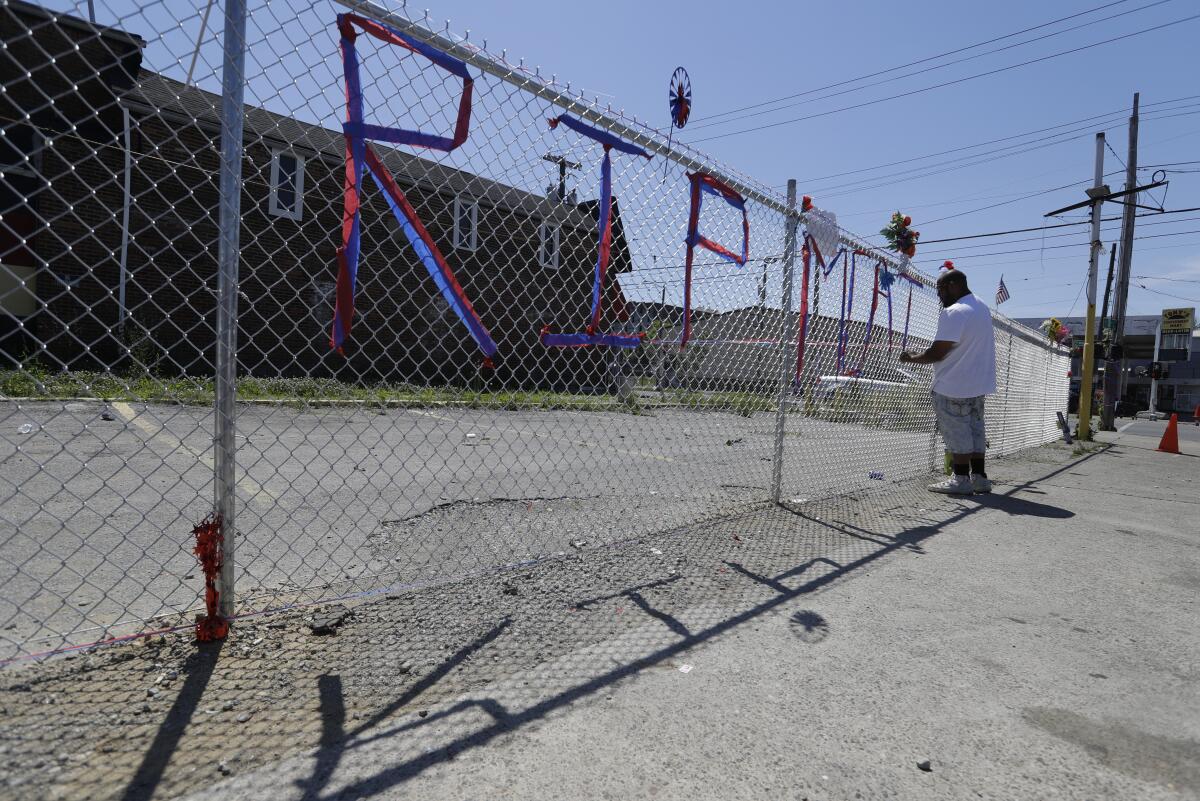
Taylor was born in Michigan and moved to Louisville with her family when she was a teenager. She quickly became a popular figure at Western High School, her easy laugh endearing her to strangers and putting her center stage during family game nights.
She loved to sing and to blast music from her white Chevy Tahoe. She followed her mother into the medical profession because she wanted to be of service. “It makes me feel so happy when I know I’ve made a difference in someone else’s life,” she wrote in a Facebook post last year.
“She was like the vibe of all vibes,” Bowman said. “When we say she was special, we’re watering it down a bit.”
And yet Taylor’s fatal shooting almost fell into obscurity. Not only did it coincide with the pandemic, there was also no video of the incident, unlike in police killings that have sparked immediate anger in recent years.
“We were able to see what happened to George Floyd,” said Lonita Baker, a lawyer for Taylor’s family. “We have to tell what happened to Breonna.”
The family’s legal team, which includes celebrity attorney Benjamin Crump, who is also representing the Floyd family and relatives of Ahmaud Arbery, a black man who was shot to death by two white men while out for a jog in Georgia, kept pushing.
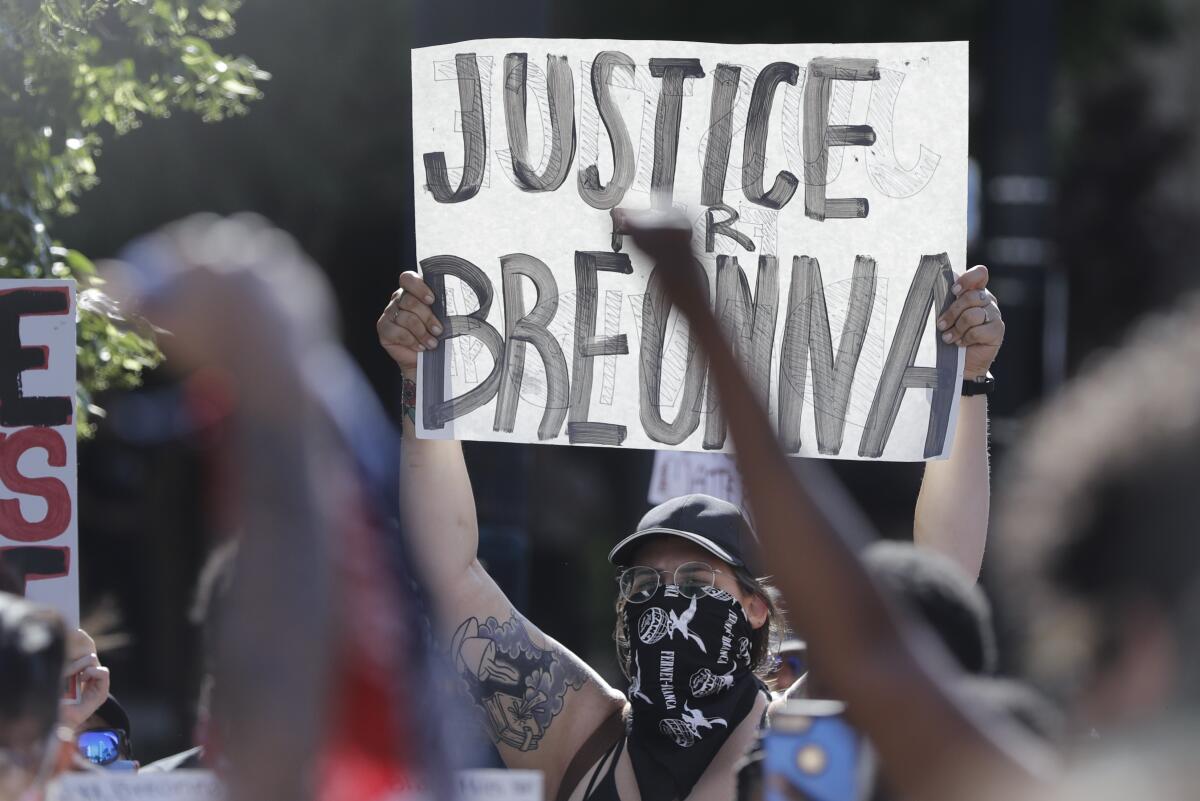
Journalists have exposed inconsistencies in the government’s version of events, as well as what appears to be a false statement on a search warrant used to justify the raid on Taylor’s home.
On the warrant, police said a postal inspector told police that the target of an ongoing drug investigation had received packages at Taylor’s address. The city’s postal inspector denied that claim in an interview with television station WDRB, saying there was no history of Taylor receiving suspicious packages.
There are also conflicting accounts about whether officers identified themselves before they broke down Taylor’s door with a battering ram.
Police had obtained a controversial “no-knock” warrant, meaning they were not required to announce themselves. Still, they said they did say they were police. Three neighbors who were present that night told The Times that while they heard loud pounding on Taylor’s door, they did not hear the officers announce themselves.
Walker and Taylor were both initially described as “suspects” and Walker was jailed and charged with attempted murder of a police officer. Prosecutors later dismissed the charge, citing a lack of evidence.
That was around the time when Taylor’s attorneys won for the release of a 911 call from the night of the shooting in which Walker, weeping, tells a dispatcher that he and Taylor were attacked by unknown intruders.
“I don’t know what is happening,” Walker said. “Somebody kicked in the door and shot my girlfriend.”
The call, which protesters and lawyers say proves that Walker did not know it was police at the door, was a turning point.
It was released May 28 as fury was growing across the country in response to a graphic video filmed three days earlier that showed a Minneapolis police officer kneeling on Floyd’s neck for more than eight minutes until his body went limp.
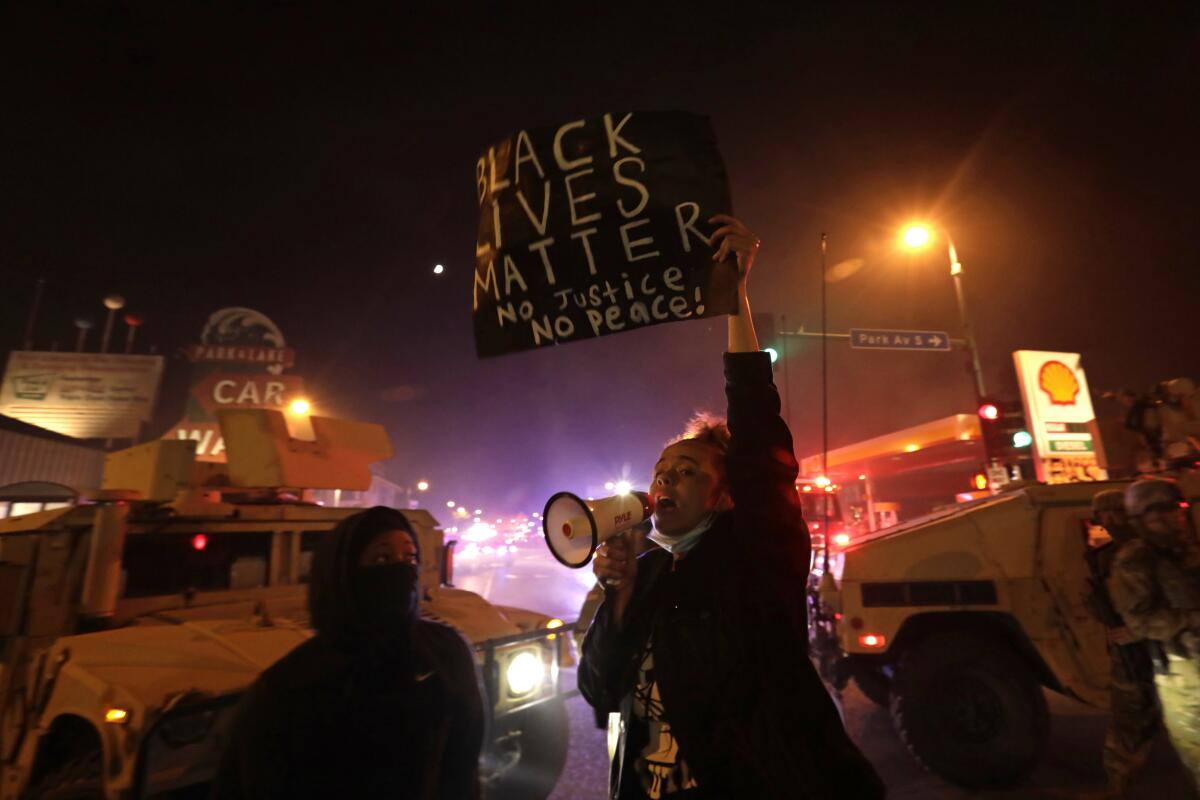
In Louisville, a city with a racist and segregationist past, protests against both deaths exploded.
Demonstrators gathered in a downtown park outside of city hall, met by a phalanx of police officers dressed in riot gear who fired tear gas and nonlethal rounds at protesters and journalists.
That evening, a shooting between civilians injured seven people. Over the next two nights, smash-and-grab thefts broke out.
Mayor Fischer said he had no choice but to crack down.
“This turned from being a peaceful protest into violence and terrorism and looting on the streets of our city,” he said May 29, announcing the curfew and asking the governor to send in the National Guard.
Many have questioned whether McAtee’s death could have been avoided if the government had responded in a less confrontational manner.
“We’re out here protesting police brutality and we’re being met with police brutality,” said Khalilah Collins, a member of the Kentucky Alliance Against Racist and Political Repression.
“Poor management of the police department has led us to this moment in time,” said David James, a City Council member and former Louisville police officer. “The city never came out and said, ‘We’re going to be reviewing our policies and we’re so sorry this happened.’”
Fischer did not fire the officers who took part in the raid on Taylor’s home, and he did not immediately fire Police Chief Steve Conrad, who had been accused of biased policing in the past, and in 2017 was the target of a no-confidence vote by the council.
Critics have also questioned why the police and National Guard were in the West End near McAtee’s barbecue restaurant, given that protests were confined to downtown.
“People were not protesting, they were hanging out,” said Sadiqa Reynolds, president of the Louisville Urban League. “While we’re there trying to get through Breonna’s death, the police provoke another.”
Though they hailed from different parts of Louisville and had different backgrounds, both Taylor and McAtee were, in their own ways, pillars in the black community who were known for helping others.
McAtee was a patient listener whom people came to with their problems, said his sister, Addie McAtee, 50. Though he had been caught up in a violent lifestyle as a younger man, he had later committed himself to helping people resolve conflicts peacefully, she said.
His nephew and business partner, Marvin McAtee, said his uncle likely had no idea the shots at his restaurant were coming from police, pointing out that shootings between civilians are common in the West End. The restaurant, he said, had a friendly relationship with local officers, and often let them eat for free.
“We fed them,” he said.
After McAtee died, his body lay on the ground outside of his restaurant for more than 12 hours before the coroner took it away. In that time, hundreds of neighbors passed by to gawk.
McAtee tried not to look at his uncle’s body, but now it’s all he can see.
“Every time it comes into my head, I try to blink it out,” he said.
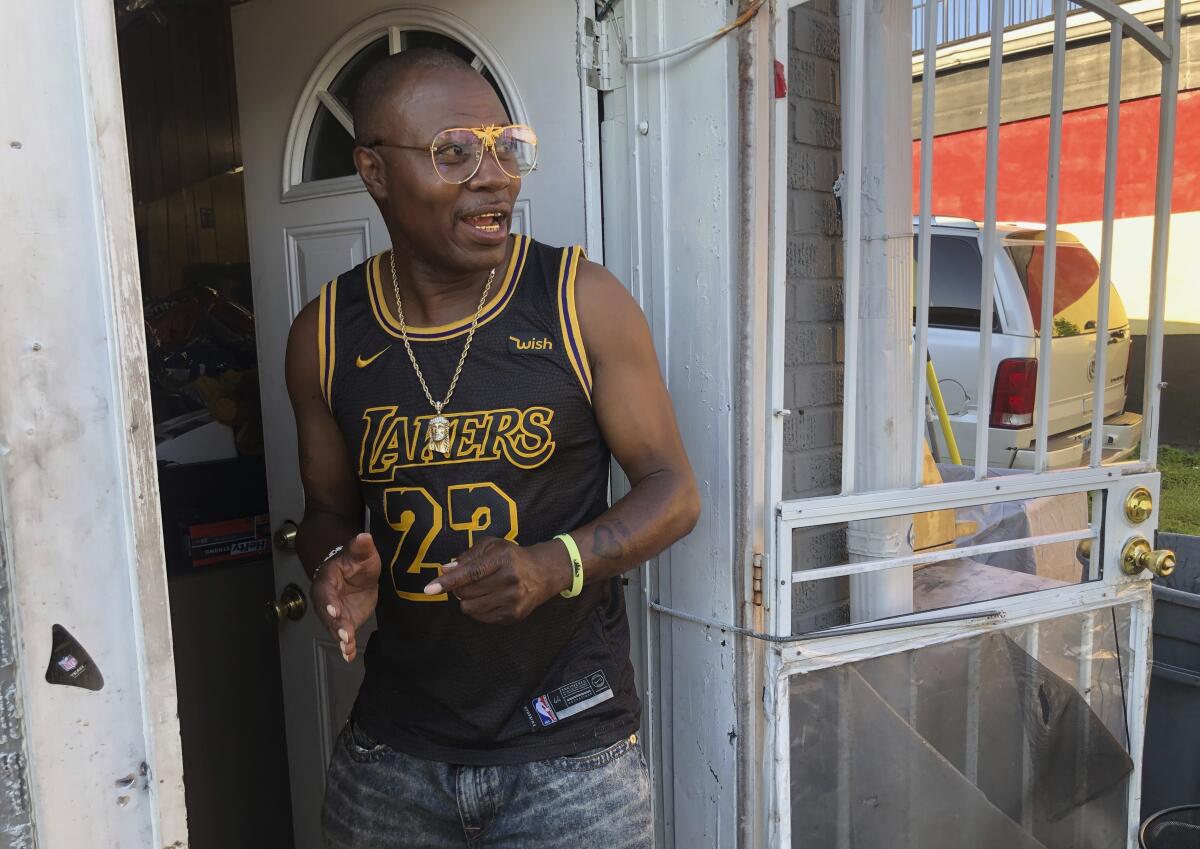
After McAtee’s death, local news outlets published a Facebook post from Katie Crews, one of the officers who shot at him. Several nights earlier, Crews had been photographed by local journalists standing with a group of officers while a female protester offered her flowers.
“I hope the pepper balls that she got lit up with a little later on hurt,” Crews wrote in a post that the police department now says it is investigating. “Come back and get ya some more old girl, I’ll be on the line again tonight.”
“They’re coming out here and just shooting people,” said Steve Romines, an attorney for the McAtee family, of police. “It’s almost like it’s a game to them.”
After it came out that police were not wearing body cameras at the time of the McAtee shooting — a violation of department policy — Fischer fired Conrad.
In an interview over the weekend, Fischer vowed to hire as his replacement a chief who will build “the most compassionate police force in the country.”
The next steps in both cases will be determined by independent investigations into each incident by the attorney general’s office in Kentucky, the FBI and the U.S. attorney’s office, he said.
On Saturday, Fischer stopped by a memorial held for Taylor downtown. He spoke briefly, telling the crowd that they should keep pushing for justice in the Taylor case, and that he would, too.
“I can talk to different audiences in different ways than some of my black brothers and sisters can,” he told them.
The June heat was oppressive, especially for those sweating under masks. Yet the mood was buoyant.
Celebrities including Beyonce and Cardi B had posted birthday messages to Taylor on Instagram. The Rev. Jesse Jackson, a hero of the civil rights movement that Taylor drew inspiration from, had come to show his respects, dressed in a blue suit.
Speakers blasted uplifting music: “Young Gifted and Black” by Nina Simone; “Everything Must Change” by George Benson; an R&B song dedicated to Taylor that was recorded by one of her cousins.
Bowman, Taylor’s friend, said she felt something like hope for the first time in months. It felt like Taylor was there, too.
“It’s like I’ve got some energy,” she said. “I feel a breeze running through my body.”
More to Read
Sign up for Essential California
The most important California stories and recommendations in your inbox every morning.
You may occasionally receive promotional content from the Los Angeles Times.
